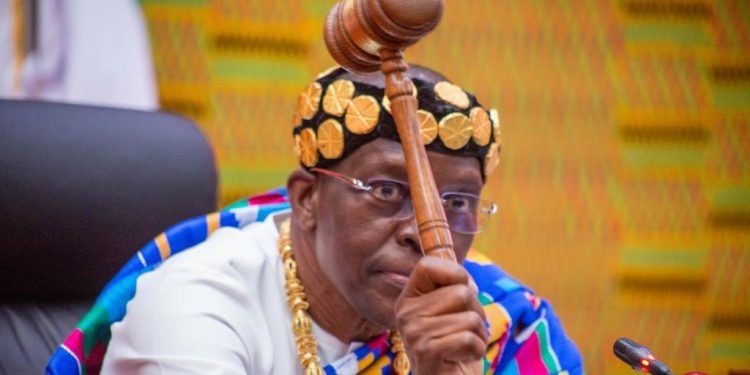Dining with the Gods… Hands off the Big Chair
Lobbying for positions and jostling for prominent seats is the next logical step after a party wins political power. Indeed, the yellow-haired gentleman (can I describe him as gentle?) is grappling with his own headache about filling important positions as he prepares to assume office once again as the leader of Uncle Sam’s federal republic.
Back home in Ghana, the opposition National Democratic Congress (NDC) has won both the presidential and parliamentary elections. This means that, in addition to exercising executive power, the NDC has the unique opportunity to control the legislature as well. Unlike the period between 2009 and 2016, it now holds a significant majority in Parliament.
Long before the elections, however, interested individuals within the party Flt. Lt. Jerry John Rawlings founded began lobbying for positions in their would-be government. As far back as April 2024, party chairman Johnson Asiedu Nketia, also known as General Mosquito, felt compelled to caution against internal struggles for positions, warning that this could demoralise party supporters.
“Some people are not only vying for positions; they are also positioning themselves as kingmakers who will make all appointments. This approach can dampen the enthusiasm of our followers,” the chairman stated.
He added, “We are not there yet. Let’s focus on winning first and then discuss how to share the rewards.”
In response to the chairman’s remarks, the then flagbearer and now President-elect John Dramani Mahama cautioned those so-called position grabbers and kingmakers not to be carried away by such fantasies.
“Let me say that I don’t have any list, and so for those of them who were referred to by the chairman as having chosen their positions, you may be very deeply disappointed,” Mahama cautioned.
However, what the party leader and chairman warned about seven months ago has now become a reality. The jostling for positions has reached a crescendo within the party, with influential organisations, including religious bodies, traditional authorities, civil society organisations, and professional associations, also lobbying for their candidates.
The question of who becomes the next finance minister, for instance, has become topical, with figures such as Majority Leader Cassiel Ato Forson and former Bank of Ghana Governor Abdul-Nashiru Issahaku being considered alongside Seth Emmanuel Terkper, who would ordinarily be the first choice for any government due to his track record and competence in debt management.
Indeed, the spokesperson for the newly-elected president recently disowned a supposed appointments list circulating in the public domain, likely created by individuals seeking to influence Mahama’s decisions.
It would, however, not be surprising to see some names on that list also appear on the official one. For instance, Hon. Samuel Okudzeto Ablakwa being named as Foreign Minister would not be out of place, given his strong oversight on foreign relations matters. Similarly, Samuel Nartey George being named as Communications Minister would not be far-fetched, given his consistent advocacy in Ghana’s communications policy over the past eight years.
Other fine candidates include Alhassan Suyuhini, Haruna Iddrisu, Zanetor Agyeman-Rawlings, and several medical professors, engineers, economists, and social scientists who are newcomers to Parliament but highly qualified in their fields. They are all likely to be considered for positions in the lean government Mahama has promised.
The days before and after January 7, 2025, when Mahama will be sworn in as the sixth president under the Fourth Republic, are expected to be hectic as he consults with advisors to finalise his first selections.
Food for the Gods
While everyone is free to aspire to positions, some roles are akin to food reserved for the gods—mere mortals salivating over such meals may be deemed sacrilegious. When invited to dine with the gods, one must choose their seat with care, as some seats are reserved.
In a recent interview, Alexander Afenyo-Markin, Leader of the outgoing majority in Parliament, urged the NDC to retain Rt. Hon. Alban Sumana Kingsford Bagbin as Speaker of Parliament. He further advised that if the party decides not to retain him, the next speaker should be chosen from within Parliament.
Initially, Afenyo-Markin’s comments could have been dismissed as mere partisan rhetoric. However, knowing Ghana’s political landscape, it appears the NPP leader may have picked up on signals that the NDC is considering a different candidate for Speaker, potentially ending Bagbin’s tenure in Parliament.
Names like former Deputy Chief of Staff Valerie Sawyer and former Speaker Edward Doe-Adjaho have surfaced within NDC circles as potential successors to Bagbin. Both are highly competent and have strong public service records.
The Man Bagbin
Despite these qualities, replacing Bagbin may be ill-advised. Bagbin has proven to be one of the NDC’s strongest assets in Parliament. His tenure has introduced significant reforms, including bridging the gap between Parliament and the public and promoting Ghanaian culture through his attire.
Bagbin’s leadership has demonstrated that Parliament cannot be bullied by other arms of government, earning him admiration across the political spectrum.
Critics arguing against Bagbin’s continuation often cite regionalism, questioning why both the President and Speaker should come from the North. This argument is flawed, as Bagbin’s candidacy for Speaker was based on merit, not regionalism.
If previous administrations paired Southerners as President and Speaker without issue, it would be hypocritical to object to two Northerners occupying those roles now.
Let us allow Speaker Bagbin to continue his reforms and cement a legacy of purposeful leadership in Parliament.



